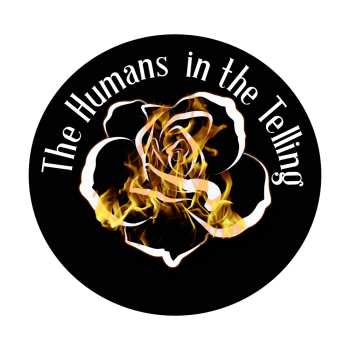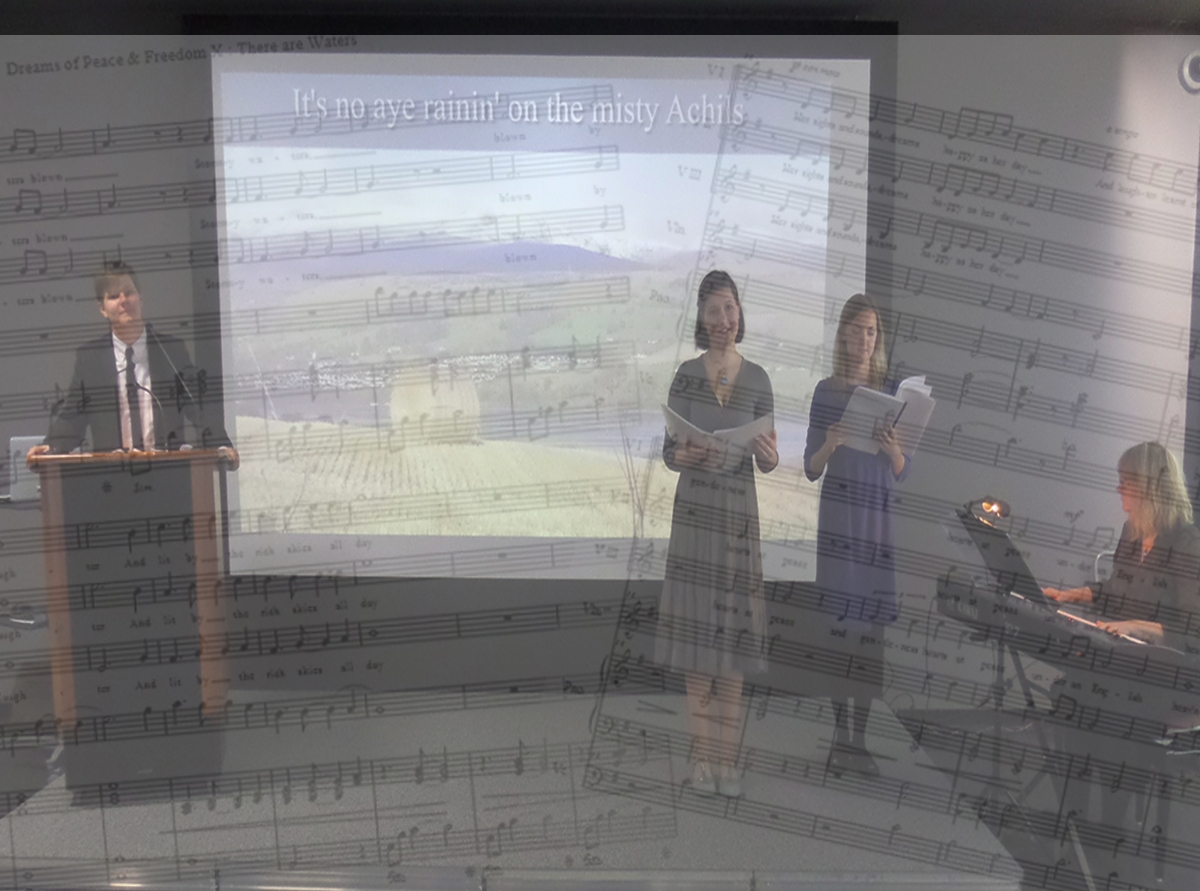Songwriter Sue Casson explores why David Maxwell Fyfe’s love of poetry, often quoting his favourites to drive home a legal point, made a song cycle the natural choice for a show that tells the story of his journey from Nuremberg to Strasbourg.
Recently, at a meeting where Tom Blackmore and I were pitching Dreams of Peace & Freedom, which tells the story of Tom’s grandfather, someone asked, ‘why a song cycle?’
It’s a fair question. If you were telling how facts uncovered during the Nuremberg Trials led directly to the post war impulse across Europe to enshrine protection of human rights in law, music might not be an obvious choice.
Although it is the way Tom and I have often chosen to tell a story, and as he would tell you, it’s the oldest way in the world. Troubadors since ancient times have entertained rapt audiences with mythic histories, in verse, in song – often with no more than their voice and whatever instrument was light enough to carry. What’s more, I’m a songwriter, Tom a writer – we write shows like that.
But really, that isn’t the whole story, and neither of us have put together a show quite like this before. For the link between those two important post war events was David Maxwell Fyfe, a well-read Scot, who often turned to poetry in his speeches to illustrate what he wanted to say.

In his closing at the Nuremberg Trials, David Maxwell Fyfe quoted Rupert Brooke’s War Sonnet V – The Soldier
‘sights and sounds, dreams happy as her day,
And laughter learnt of friends, and gentleness
In hearts at peace’
are not the prerogative of one nation. They are the inalienable heritage of mankind.’
David Maxwell Fyfe quoting Rupert Brooke in his closing at the Nuremberg Trials August 1946
This speech, the first he had made at Nuremberg, and written after he had forensically examined all the evidence and confronted the perpetrators, sets out his commitment to fundamental rights and freedoms, and signals his future involvement in enshrining them in law. It is the fulcrum of his journey from Nuremberg to Strasbourg. And to drive his point home – Maxwell Fyfe, a learned lawyer – quotes a poet: Rupert Brooke. If we were looking for an opportunity to incorporate music directly into his story it was this – poetry that he had chosen, demanding a musical setting.
‘I think that HJ never quite understood why I did, or how I could, prefer the wartime sonnets of Rupert Brooke to those of his hero Wordsworth.’
David Maxwell Fyfe writing about his English teacher at George Watson’s College in his autobiography, A Political Adventure (1964)
With this as our point of inspiration, reading the other four war sonnets in Rupert Brooke’s 1914 collection, published when Fyfe was just fourteen years old, Tom was struck by the way the poetic language expressing Brooke’s idealistic values at the outset of the First World War had filtered through into his grandfather’s speeches.
In his closing at Nuremberg, he not only quotes Brooke directly, but goes on to speak of ‘heritage’, a concept that closes Brooke’s War Sonnet III. As he seeks to create an enforceable treaty to protect human rights after Nuremberg, he champions Safety (War Sonnet II has the same name) and Security, which appears in the same sonnet. Norman Birkett, a British judge at the Nuremberg Trials, goes to considerable trouble to give Fyfe a Scottish poetry collection as a leaving gift, knowing exactly what it will mean to him.

For Maxwell Fyfe delights in finding the imaginative truth through reading, on occasion writing stories and verse himself.
‘romance … is poetry in action. It comes when the inevitable moment finds the inescapable deed,’
David Maxwell Fyfe writing of the tales that defined his childhood in The Watsonion, alumni magazine of George Watson’s College
This almost defines that moment at Nuremberg, when his closing speech expresses an awareness of rights and freedoms for all. A self-confessed romantic of the law, the poetry flows through Fyfe’s conscious and unconscious mind as he expresses what he is seeking to achieve.
In Dreams of Peace & Freedom, inspirational quotations from the speeches, letters and autobiography of David Maxwell Fyfe, naturally thread through musical settings of poetry he found inspiring. The melody infuses his chosen poetic words with another unspoken dimension – emotion to reinforce the story, rather as in his speeches, the poetry heightens the tenor of his legal argument.
Fyfe praised the ‘incomparable songs’ of Scotland, and so musically setting the poetry in his heart beside his spoken words seemed not only effective, but perfectly natural. It represents the imaginative life that informs and reinforces his legal practice. Which is the real reason why his post-war dreams of peace and freedom and how he sought to achieve them, are best brought to life in a song cycle.
Dreams of Peace & Freedom, the fully mastered recording, is available to listen to SoundCloud or find out more at www.thehumansinthetelling.org.




